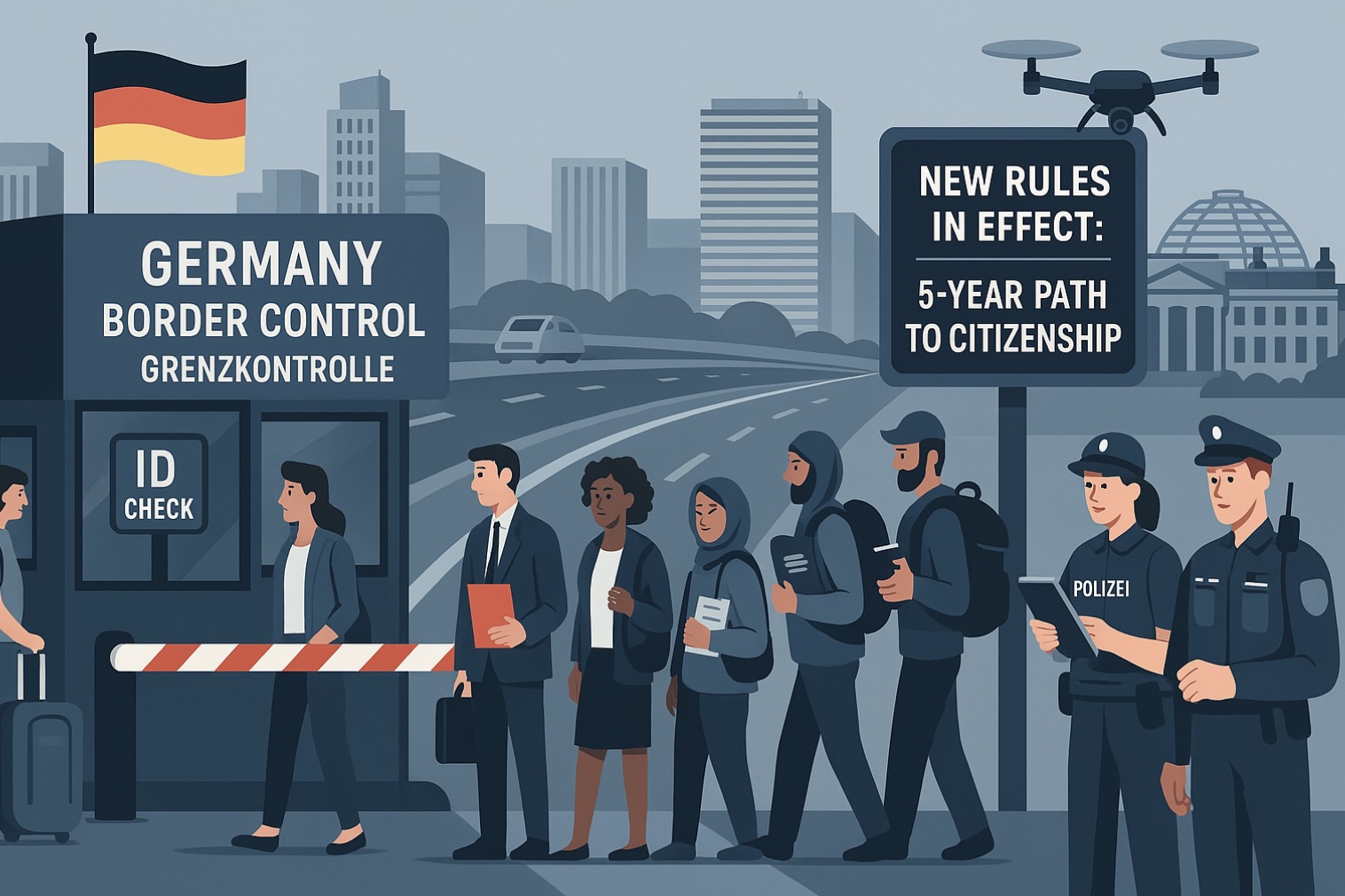Germany to Maintain Border Checks Across All Internal Borders Under New Coalition Plan

Germany’s New Coalition Agreement Enforces Stronger Migration Control.
Germany’s new coalition government (CDU, CSU, SPD) has announced it will maintain border checks at all internal borders, aiming to curb irregular migration and streamline entry procedures. This measure is part of a wider migration policy outlined in the 144-page coalition agreement published on April 9, 2025.
Incoming Chancellor Friedrich Merz stated the new government will adopt a more structured and secure approach. He also confirmed the reversal of the three-year path to citizenship introduced by the previous administration. Going forward, only those who have lived in Germany legally for five years will be eligible to apply.
“We will strengthen border controls, stop voluntary admission schemes, and suspend family reunification programs,” Merz said in a joint press conference.
Border Checks Remain a Key Tool
Border controls, reintroduced in September 2024 across Germany’s frontiers with Poland, Austria, Czech Republic, and Switzerland, were initially temporary. However, Chancellor Olaf Scholz extended the measure until September 15, 2025, citing its effectiveness in combating irregular migration.
Interior Minister Nancy Faeser emphasized the necessity of these controls: “Our actions are effective and still necessary. The federal police will continue checks at all German borders.”
However, not all neighbors welcomed the decision. Luxembourg’s Interior Minister Léon Gloden criticized the policy, arguing it negatively impacts bilateral movement and trade.
Broader Reforms on Immigration
The agreement also outlines expanded digital surveillance, increased police powers, and stricter enforcement mechanisms. Asylum procedures will be tightened, and illegal entry will face heightened scrutiny.
The coalition insists these measures are necessary for security and rule of law, amid public demand for a more orderly migration framework. Germany is expected to implement further regulatory tools, including biometric tracking and digital visa monitoring.
While controversy remains, especially regarding Schengen freedoms, the German government continues to prioritize internal control and integration capacity over liberal border access.








